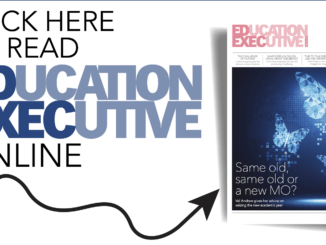
How can you be sure that you are leading with authenticity?
CREDIT: This is an edited version of an article that originally appeared on Integrity Coaching
Distrust of those at the top seems to be at an all-time high, with politicians and high-profile chief executives repeatedly found to be lacking integrity. People want to be led by someone real; an ‘authentic’ leader.
But what does that mean? How do authentic leaders lead and behave? How can we distinguish the authentic leader from the tyrant? These questions are important when we are looking for the leaders of a country, but they are just as crucial when we think about the leaders of our schools.
To thine own self be true
The notion of authentic leadership is not new; Shakespeare was pressing the importance of leaders driven by ethical and honest morals more than 400 years ago. Whether it’s King Lear’s ego dividing his kingdom and family, or Macbeth’s maniacal hunger for power causing his own tragic downfall, we can see similar storylines playing out in the contemporary world.
“This above all: to thine own self be true, And it must follow, as the night the day, Thou canst not then be false to any man.”
Shakespeare coined this definition of authentic leadership in Hamlet. There are many ways in which to interpret these words of wisdom. Mahatma Gandhi, perhaps, expressed the notion more clearly to the modern ear when he said “When what you think, what you say and what you do are in harmony – that is happiness.” Both Gandhi and Shakespeare seem to be commenting on the need for your internal monologue to match your external actions if you are to achieve an honest, ethical and practical leadership style.
Authentic leadership also leads to trust, which is so important, as there is evidence that we are trusting our leaders less and less today – for example, the Edelman Trust Barometer 2019 report found that six-in-10 respondents felt political leaders didn’t listen to them. Without such trust there will, inevitably, be an impact on how effective we are able to work and lead our schools.
A new model for school leadership
A report entitled Navigating the Educational Moral Maze, published in January by the Ethical Leadership Commission (ELC), offers some hope for a brighter future.
The report contains a Framework for Ethical Leadership that resonates closely with the notion of authentic leadership. It is designed to tackle the concerns around a lack of guiding principles for ethical leadership in education.
The ELC confirms that ideals of ‘strong and robust’ leadership are less important than a ‘wise and just’ style, with leaders ‘driven as much by a vision of a good society as by competitive advantage’. Despite this, in England, there is a myriad of reasons why being an authentic leader is not easy; the strict accountability systems in place in the current education system, increasing funding pressures and the recruitment crisis all make it harder to practise and develop authenticity.
So, what steps can leaders to take on their journey towards greater authenticity?
Questions for reflection
We use four key questions, based on research into authentic leadership, which underpin the assessment method and encourage participants to look introspectively at their leadership behaviours.
If you have chance, I would really encourage you to take some time to reflect on these questions in the coming week and explore whether, in Gandhi’s words of wisdom, what you think, say and do are in harmony.
– How self-aware are you? Do you know your strengths, limitations and what’s unique about you? In order to be truly authentic, leaders must work hard at understanding and developing themselves.
– Have you got ambition and humility (sometimes termed humbition), in equal measure? In Good to Great (2002) Jim Collins highlights that organisations that go from good to great are most typically led by leaders who demonstrate the key characteristics of what Collins terms ‘level 5 leadership’; personal humility and a professional will to do the right thing.
– Do your intentions match with your actions? Do you ‘walk the walk’, but with a limp? To be seen to have integrity, your deeds must match your words.
– Do you lead with your heart or your mind? To what extent do you listen to, and follow, your intuition? Or do just you follow your school’s objective data?
Do you have a desire to lead with greater authenticity?
We believe that authentic school leadership is crucial for both supporting great leadership and developing healthy schools. Yet being an authentic school leader can be exceedingly challenging, particularly in the context of an education system which has not, as yet, found a consistent way to enable school leaders to embrace their vulnerability and true sense of personhood.




Be the first to comment